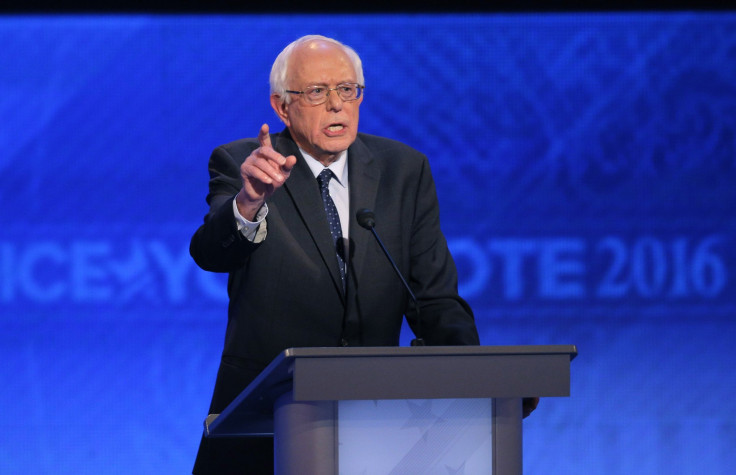Election 2016: Bernie Sanders Calls For Restructuring Federal Reserve

Democratic presidential candidate Sen. Bernie Sanders called for a major restructuring of the Federal Reserve in an op-ed piece published Wednesday in the New York Times. The piece argues that the Federal Reserve, which oversees financial institutions and uses monetary policy to maintain employment and price stability, is too beholden to big banks rather than everyday people.
“Unfortunately, an institution that was created to serve all Americans has been hijacked by the very bankers it regulates,” Sanders wrote in the op-ed.
In the piece, he calls for the Government Accountability Office to conduct a full independent audit of the Fed each year, and lays out a plan for how he would require the U.S. central bank to help regular Americans in addition to corporate bankers.
Banking industry reform has long been a top priority for Sanders, and many have said his progressive views on this and other issues have pushed Hillary Clinton, his primary opponent for the Democratic nomination, to the left. In his role as a U.S. senator from Vermont, Sanders has introduced legislation multiple times that would break up the nation’s biggest banks, which he sees as exerting too much influence and dangerous for the economy.
“Seven years ago, the Federal Reserve and the Treasury Department bailed out the largest financial institutions in this country because they were considered too big to fail. But almost every one is bigger today than it was before the bailout,” the New York Times piece said. “If any were to fail again, taxpayers could be on the hook for another bailout, perhaps a larger one this time.”
Sanders’ push for banking reform shows that he believes, even seven years after the country’s economy collapsed in 2008, liberals are still angry about big banks receiving bailouts. And he may be right. Polls consistently show that Democrats place a higher priority on the economy and jobs when voting than any other topic. A Quinnipiac University poll out Tuesday showed 34 percent of Democrats said the economy and jobs were the issues that mattered most to them when deciding whom to support for president — more than any other issue by over 20 percent.
In his piece for the New York Times, Sanders criticized the Fed for its recent interest rate hike, which he said would hurt American workers who “need more jobs and higher wages.” He also lambasted the U.S. central bank for allowing members of big banks to serve on its boards — a practice he said would be akin to allowing the head of oil and gas giant Exxon Mobil to run the Environmental Protection Agency.
“If I were elected president, the foxes would no longer guard the henhouse. To ensure the safety and soundness of our banking system, we need to fundamentally restructure the Fed’s governance system to eliminate conflicts of interest,” Sanders said in the piece. “Board members should be nominated by the president and chosen by the Senate. Banking industry executives must no longer be allowed to serve on the Fed’s boards and to handpick its members and staff. Board positions should instead include representatives from all walks of life — including labor, consumers, homeowners, urban residents, farmers and small businesses.”
Sanders also laid out a plan for how he would require financial institutions to invest in the economy and provide affordable loans to small businesses and consumers. He called for the Fed to charge banks a fee that would be used to provide direct loans to small businesses, and said he would require large banks to commit to increasing lending to creditworthy small businesses and consumers in exchange for support from the central bank.
Finally, the Vermont senator reiterated his position that he wantd to reinstate the Glass-Steagall banking law, which required commercial banks to split their investment banking operations. The law was repealed in 1999 and has been a rallying cry for progressives like Sanders and Massachusetts Sen. Elizabeth Warren.
“It’s time to make banking work for the productive economy and for all Americans, not just a handful of wealthy speculators,” Sanders said. “And it begins by making the Federal Reserve a more democratic institution — one that is responsive to the needs of ordinary Americans rather than the billionaires on Wall Street.”
© Copyright IBTimes 2024. All rights reserved.






















